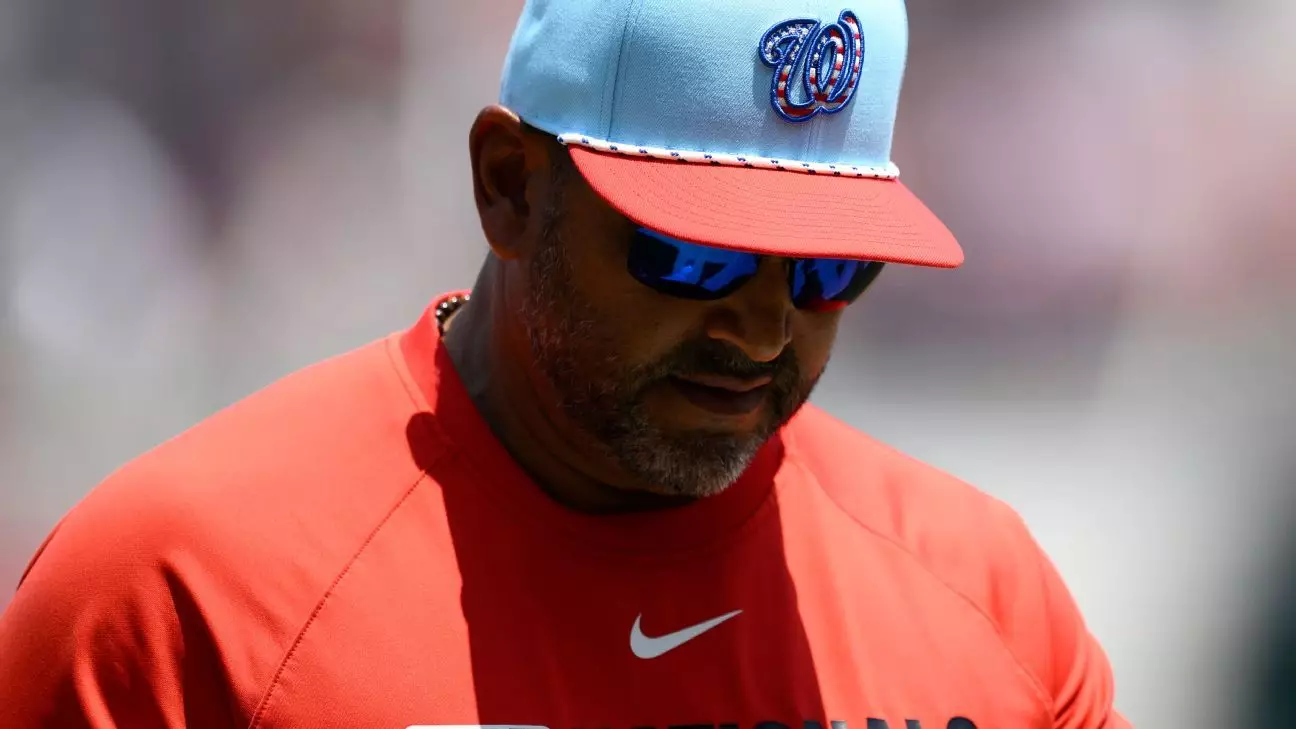The recent firing of Washington Nationals’ president of baseball operations Mike Rizzo and manager Davey Martinez signifies more than just a change in leadership; it exposes the underlying frustrations and systemic issues that have plagued the franchise for years. While the decision might appear drastic, it’s a necessary step toward acknowledging that the team’s current trajectory is unacceptable—not just for management but for the loyal fans who have stuck with them through tumultuous times. Instead of lamenting as a team mired in mediocrity, the Nationals must fundamentally reassess their approach to rebuilding, talent development, and organizational strategy.
This team’s recent struggles aren’t born out of a single season’s bad luck—they stem from long-standing flaws in management’s vision and execution. Despite winning the 2019 World Series under Martinez, the team has failed to sustain its competitiveness, often falling short of division titles and playoff appearances. Their recent 37-53 record exemplifies a roster that’s still overly reliant on a handful of young prospects while neglecting strategic investments needed to compete consistently. This situation should serve as a wake-up call to ownership and stakeholders: winning isn’t just about flashes of brilliance but about building a resilient, adaptive franchise that can weather inevitable setbacks.
Ownership’s Short-Sightedness and Missed Opportunities
The roots of the Nationals’ decline partially lie in their cautious, sometimes hesitant approach during the offseason. Industry analysts anticipated increased spending to bolster the roster, yet the franchise preferred a conservative strategy, opting for minor signings and trades that failed to address broader organizational gaps. Their focus on young talent—like James Wood and MacKenzie Gore—while promising, might not be enough to sustain long-term success if compounded by a failure to develop depth or to bring in critical veteran presence.
The decision to part ways with Rizzo and Martinez, though arguably justified given the team’s underperformance, also indicates a deeper issue: a failure of strategic vision. The team’s leadership seemed to lack the foresight or willingness to adapt to the increasingly competitive landscape of Major League Baseball. Instead of aggressively pursuing free agents or expanding their payroll to fill voids, they played it safe—an approach that has left them behind more aggressive rivals. These organizational choices reveal a shortsightedness that hampers any hope of returning to contention without significant structural overhaul.
Rebuild or Reinvent? The Fragile Promise of Fresh Leadership
Appointing interim general manager Mike DeBartolo signals an awareness that the current management structure is insufficient. But the real challenge lies ahead: will this fresh face be enough to catalyze the change that the franchise desperately needs? The Nationals’ ownership must now leverage this transitional phase to not just rebuild the team’s roster but to overhaul their entire philosophy of player development, acquisition, and community engagement.
While the focus is rightly on constructing a winning team, there’s also a moral obligation for the franchise to foster a culture rooted in accountability and long-term thinking. The Nationals’ struggles are emblematic of a broader issue in professional sports—an overemphasis on short-term gains at the expense of sustainable growth. The team’s leadership should aim to create a balanced approach that values not only immediate results but also invests in the infrastructure that will secure future success.
Lessons from a Franchise’s Wake-up Call
The Nationals are at a pivotal juncture—an opportunity disguised as a challenge. They must avoid the trap of complacency that often follows managerial upheavals. Success lies not merely in changing face values but in fostering a comprehensive transformation that resonates through every layer of the organization. This means more than just new managers or executives; it demands a cultural shift, an embrace of innovative analytics, and a willingness to take calculated risks in pursuit of greatness.
The franchise’s previous successes, like the 2019 World Series win, serve as a reminder of the potential that exists within the organization. Their narrative can be rewritten, but only if they learn from past missteps, confront their deficiencies head-on, and prioritize building a resilient, adaptable, and forward-thinking team. The Nationals’ future depends on their ability—or failure—to embrace this challenge with both humility and ambition.


Leave a Reply